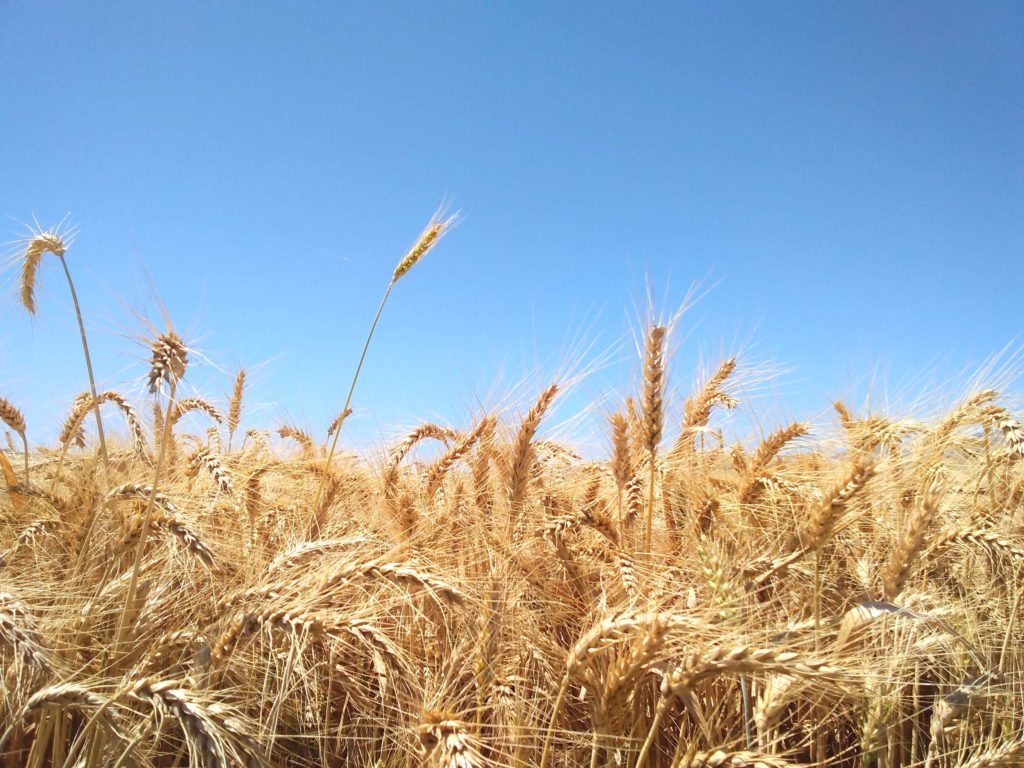An Omer of love for the neighbor
Just after Easter, I received a gift of a “barley omer” from Yisca Harani, a Jewish woman who is much more than an ordinary tour guide. She specializes in Christianity and gives seminars and lectures as well as being a university level researcher.
For anyone interested in Israel and Christianity I recommend following her website (https://www.yiscaharani.com/en) and Facebook page (https://www.facebook.com/YiscaHaraniInfo). Her Jewish perspective in explaining Christianity is always incredibly enriching.
Yisca, with a group of participants in one of her very popular seminars, came to visit me and offering me a barley omer, she made a surprising and courageous gesture towards me, let’s see why.
The omer (“sheaf”) is an ancient biblical volumetric measurement of grains. On the day following the Sabbath during Passover – on the second day of Passover (Feast of Unleavened Bread) an omer of barley was offered at the Temple in Jerusalem.

“Speak to the children of Israel and say to them, When you come into the land that I give you and reap its harvest, you shall bring the sheaf of the firstfruits of your harvest to the priest, and he shall wave the sheaf before the LORD, so that you may be accepted. On the day after the Sabbath the priest shall wave it. And on the day when you wave the sheaf, you shall offer a male lamb a year old without blemish as a burnt offering to the LORD”. (Leviticus 23)
Rabbi Aharon A. Locci remarks: “At the time of the wanderings of the children of Israel in the desert, the Lord provided for their maintenance with one Omer of manna each per day. This food, of which they knew neither the constitution nor the origin, was the tangible sign of the hashgacà temidit, the constant protection of G-d over His people. For the Jews themselves it was also a sort of test to be passed, a “measure” to have their level of fidelity to the divine laws “measured”.
Perhaps, just in remembrance of the Omer of manna, the people of Israel were commanded, in Leviticus, to bring the Omer Seorim, a measure of barley, which was not only to be considered a thanksgiving to the Lord for the protection granted in the past, but also a form of prayer and praise for the continuation of His favor in the present and in the future”.
source: https://www.morasha.it/zehut/al01_omer.html
By giving an omer of barley to me, neither Jewish nor a priest, Yisca certainly wanted to make a gesture of friendship and benevolence towards me, a gesture reminiscent of the gift given by Boaz, an Israelite, to Ruth, the Moabite-foreigner widow, praised in the Bible for her righteousness, who went to glean in his fields and became the progenitor of David (and therefore of Jesus). As if to say: “You can feel at home in Israel, I hope that your presence here will be a bearer of good, as Ruth’s was”.
Yet this remains a courageous gesture that bears a striking resemblance to the many gestures made by Jesus, who crossed barriers and compromised his own reputation before the most observant Jews, surrounding himself with apostles who were sinners, touching lepers, speaking to adulterous women, and praising the faith of a foreign Syrophoenician woman.
Our observances and traditions, Jewish or Christian, full of meanings, but seen in a fundamentalist way can soon turn into the opposite of what they want to teach, in the end they always have this purpose, to make us grow in love for God and our brothers according to the two commandments that, according to Jesus himself, summarize the whole Law:
“Teacher, which is the great commandment in the Law?” And he said to him, “You shall love the Lord your God with all your heart and with all your soul and with all your mind. This is the great and first commandment. And the second is like it: You shall love your neighbor as yourself. On these two commandments depend all the Law and the Prophets”. (Mt 22)

Fields of barley and the Mount Arbel, near the Sea of Galilee


Comments on An Omer of love for the neighbor